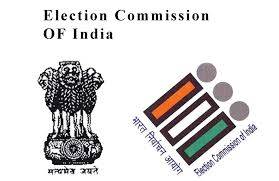- Reducing of Voting Age: The 61st Amendment Act to the Constitution reduced the minimum age for voting from 21 to 18 years. (read about important amendments in the Indian Constitution, in the linked article.)
- Deputation to Election Commission: All personnel working in preparing, revising and correcting the electoral rolls for elections shall be considered to get on deputation to the EC for the amount of such employment, and that they shall be superintended by the EC.
- Increase within the number of proposers and therefore the security deposit: the amount of electors required to sign as proposers within the nomination papers for elections to the Rajya Sabha and the State Legislative Councils has been raised to 10% of the electors of the constituency or ten such electors, whichever is a smaller amount chiefly to stop frivolous candidates. The security deposit has also been hiked to stop non-serious candidates.
- Electronic Voting Machine (EVMs): First introduced in 1998 during the state elections of Delhi, Madhya Pradesh and Rajasthan, EVMs are used widely now as they are fool-proof, efficient and a better option in terms of the environment.
- Debarment on conviction for violating the National Honours Act, 1971: This shall lead to disqualification of the person for 6 years from contesting to the Parliament and the state legislatures.
- Restriction on contesting from quite 2 constituencies: A candidate cannot contest from quite 2 constituencies.
- Demise of a contesting candidate: Previously, the election was countermanded on the demise of a contesting candidate. In the future, no election are going to be countermanded on the death of a contesting candidate. If the deceased candidate, however, was found out by a recognized national or state party, then the party concerned are going to be given an choice to nominate another candidate within 7 days of the difficulty of a notice thereto effect to the party concerned by the committee .
- It is prohibited by law to travel to or near a booth bearing arms. This is punishable by imprisonment for up to 2 years.
- On poll days, employees of organisations get a paid holiday and violation of this is often punishable by a fine.
- Restriction on sale of liquor: No liquor or other intoxicants shall be sold or given or distributed at any shop, eating place, or any other place, whether private or public, within a polling area during the amount of 48 hours ending with the hour fixed for the conclusion of poll.
- Time limit for bye-elections: Bye-elections to any House of Parliament or a State Legislature will now be held within six months of the occurrence of the vacancy therein House. (Read about Parliament & State Legislature in the linked article.)
- The period of campaigning has been reduced.
Electoral Reforms Post 2000
The electoral reforms target the election process within the country. The list of correspondent electoral reforms are given below:
1. Ceiling on election expenditure: at the present , there's no limit on the quantity a political party can spend in an election or on a candidate. Still, the Commission has put a cap on individual candidates’ spending. For the Lok Sabha elections, it is Rs. 50 – 70 lakh (depending on the state they're contesting the Lok Sabha seat from), and Rs. 20 – 28 lakh for an assembly election.
2. Restriction on exit polls: The EC issued a statement before the 2019 Lok Sabha elections saying that exit poll results could be broadcast only after the final phase of the elections were over. This was done to avoid prospective voters being misguided or prejudiced in any manner.
3. Voting through postal ballot: In 2013, the EC decided to expand the ambit of postal ballot voting within the country. Previously, only Indian staff in missions abroad and defence personnel during a limited way, could vote via postal ballots. Now, there are 6 categories of voters who can use the postal ballot: service voters; special voters; wives of service voters and special voters; voters subjected to preventive detention; voters on election duty and Notified voters.
4. Awareness Creation: the govt decided to watch January 25th as ‘National Voters Day’ to mark the EC’s founding day. Read more on the National Voters’ Day here.
5. Political parties need to report any contribution in excess of Rs 20000 to the EC for claiming income tax benefit.
6. Declaring of criminal antecedents, assets, etc. by the candidates is required and declaring false information within the affidavit is now an electoral offence punishable with imprisonment up to six months or fine or both.
